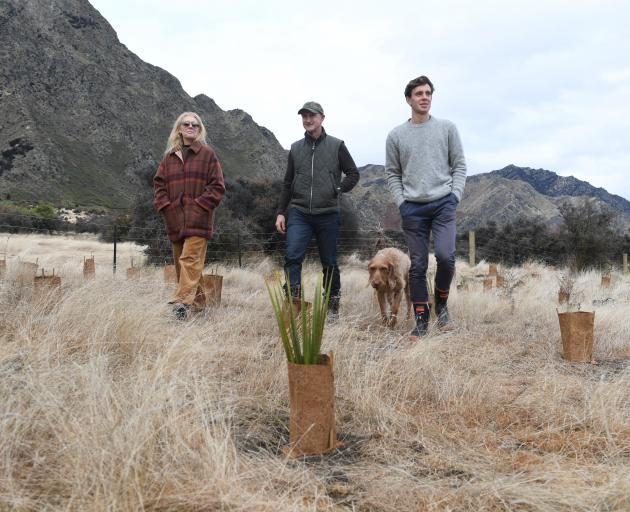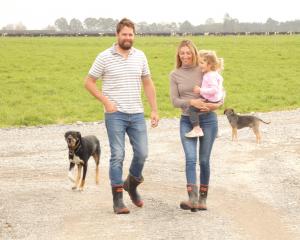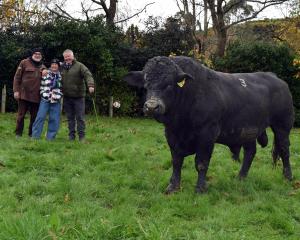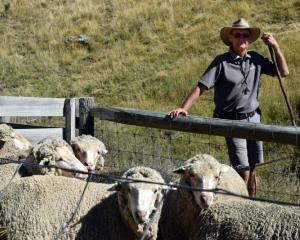
That’s the message from entrepreneur and farmer Geoff Ross to those critics of the recent Country Calendar episode on Lake Hawea Station, the property he owns with wife Justine.
While the show generated an outpouring of criticism on social media, Mr Ross said that was balanced by "literally thousands" of messages, emails and calls in support.
The couple, known as co-founders of vodka brand 42 Below and branding supremos known for their involvement with a variety of other successful companies, including Trilogy, Ecoya and Moa, have developed the property into New Zealand’s first carbon positive certified farm.
Mr Ross said there was always a segment in any sector that was worried about change. Lots of sheep and beef farmers were also "doing it tough".
While it might have been in another sector, Mr Ross said the couple knew what that was like, recalling the days when they could not get $20 out of the cash machine. "We know that feeling," he said.
The couple, who started 42 Below in their garage, were from three- or four-generation farming families and, while they had a hiatus into consumer brands, agriculture was something that was "in you". They returned to the sector with some learnings from their stint in the marketing world.
The first thing marketers ever did was talk to the customer; in their case, it was those who bought their merino wool and they discovered, to their "complete surprise", that shearing could be viewed as somewhat of a brutal process.
That, they felt, was unjust and they asked that if they could help correct that view and demonstrate that it was not the case, if it would lead to a more fulfilling business relationship for them and the reward of a premium.
Told yes, the couple decided to "bring that to life". "You can’t just tell someone on the other side of the world that it’s fine [shearing]," he said.
That was when they introduced the likes of mattresses at the bottom of the port-hole for the sheep to land on and scorecards to prove that shearing was a good process for the sheep; initiatives like that attracted much of the criticism on Country Calendar.
But Mr Ross said they had some "really good chats" with the team from Peter Lyon Shearing and it was decided to give the new way of shearing a go.
Initially, they might have gone too far to slow it down where they had reached a really good point where they were still meeting the mean target for what they used to do, but doing so with far more care for the sheep.
The atmosphere in the shearing shed was great and the shearing contractors — for whom they had a "great deal of respect" — were supportive of it.
The reaction to Country Calendar surprised them, both in terms of those on social media who "decided to put their views out there" and also the thousands of messages of support, so many that they were struggling to respond to them.
"Fortunately the positive messages were flowing at a greater rate than the Facebook [keyboard] warriors," he said.
The overwhelming response was "good on you" and it came from a wide range of supporters, including industry leaders, the dairy industry and the company’s largest meat companies.
While some would say that it was just people in the cities giving support, most of the comments were from people in rural New Zealand, he said.
Mr Ross acknowledged that there were people who questioned what they knew about farming, given they had been involved for "five minutes".
"I accept that. There are people who are far more advanced in farming and farming practices than we are.
"We don’t have all the answers, not everything we try is going to work, but we’ve got to lift those returns for growers."
For being back in the thick of farming again, Mr Ross said it was a relentless and tough livelihood — physically, mentally and financially — and they had a new renewed respect for farming.
They were also always open to any ideas; thinking of ways to potentially increase returns for growers had to be a good thing, he said.
Having attended the likes of the recent E Tipu: The Boma Agri Summit, Mr Ross said the mood was very optimistic in the agricultural sector, very action orientated and there was an agreement of change, sense of urgency and desire to "get on with it".
When it came to the negativity on social media, he quipped he might be the "eternal optimist", but he did not think those comments were reflective of New Zealand agriculture at the moment.
"I think in the most, people know that change is part of any sector," he said, adding that, taking it to the extreme, without change, there would not be the likes of iPhones or electric vehicles.
Change should not be dictated on people, it should be initiated because opportunities were seen. Climate change and the need for the world to decarbonise should be looked at as an opportunity for New Zealand, not a threat, he said.
NZX head of insights and rural analyst Julia Jones told the New Zealand Herald that the kerfuffle around the Country Calendar episode was reflective of fear of change.
"The world is transitioning and things are moving a lot faster than they’ve ever moved.
We’re all feeling a little bit tense and fatigued. And so, anything like this can trigger someone."
And that resistance to change was not limited to farming. "If you looked at any sector, anywhere, where changes are happening and it’s driven at pace, it can be overwhelming. It’s scary ... Some of the change coming at farmers has been overwhelming and it has come with too much pace," she said.
The episode also reflected the growing tension between rural and urban New Zealand — which is often reduced to the idea of urbanites telling rural people how to live their lives.
"If you’re a farmer, who cares and thinks about your environment every day, it is a little bit frustrating when somebody who just turns the tap off while brushing their teeth has a go at you about not doing enough.
"I think that’s where a lot of tension comes in. It’s a lack of understanding between the farmer and the non-farmer."
While there was an element of that tension in the criticism of the Country Calendar episode, Ms Jones said it was important to remember that Mr Ross actually came from an agricultural background and was now pouring his money and effort into trying new things.
Ms Jones said she did not believe that most of the farming community minded the Ross family doing things their way, but the problem with modern discourse was that the loudest voices were sometimes treated as representative of an entire group of diverse people.
She advised caution against painting the entire rural community in a single hue and accusing them of being resistant to change.
"If we broke it down, there’s a good portion of the sector that is trying hard to embrace change ... These are people who are constantly thinking about how to better the environment. Yes, there are some bad ones. You will have some people who aren’t doing the right things, but that’s the same in every sector. So let’s not punish a whole sector based on one or two bad ones."
She also believed having entrepreneurs bringing a disruptive attitude to any sector could be good. Not everything they tried would necessarily work, but it was always good to have people trying new things.
— Additional reporting The New Zealand Herald















